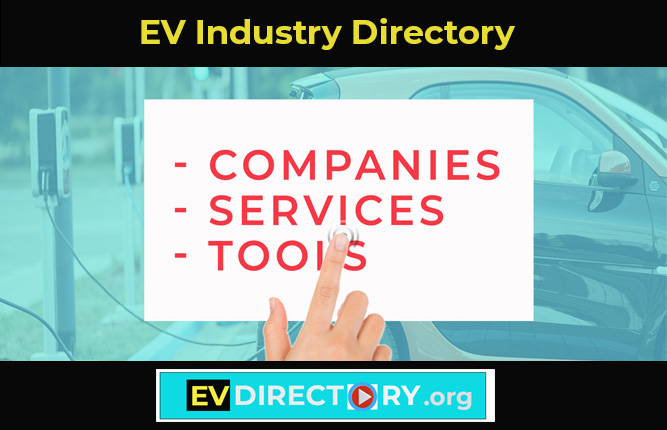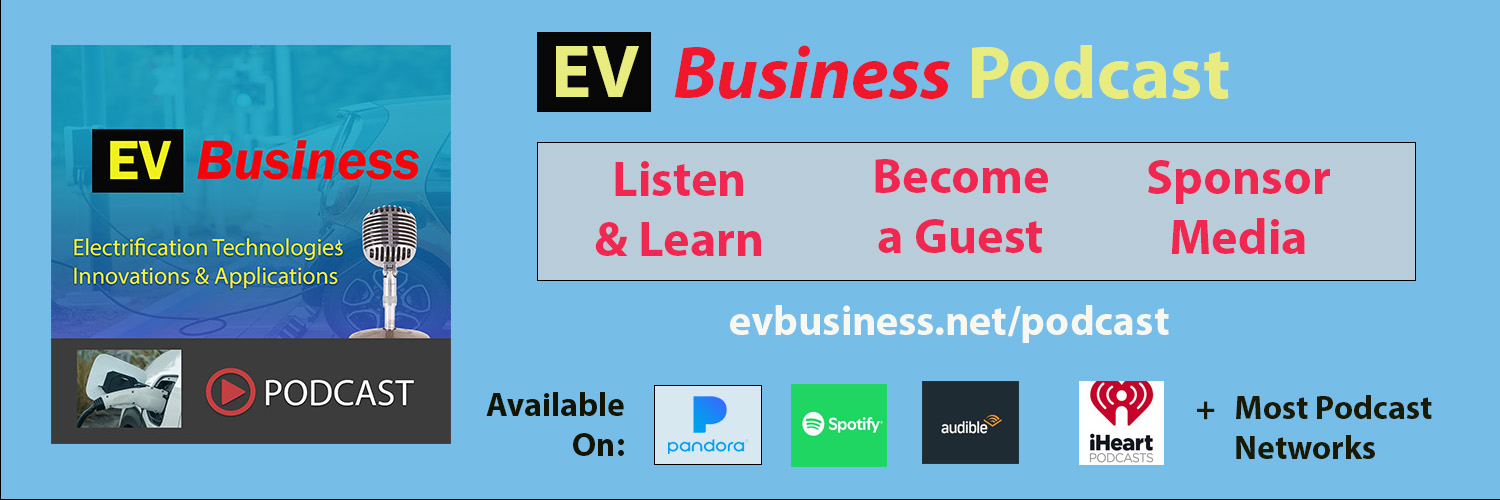EV Charging Grant and Incentive Management companies help EV system owners and operators identify, apply for, and maximize government rebates, tax credits, and utility programs to significantly reduce the upfront and ongoing costs of installing and operating charging infrastructure. EV Charging Grant and Incentive Management companies solve the challenge of navigating the complex, ever-changing maze of funding opportunities that property owners and operators face when installing EV charging systems. Without expert help, projects risk ineligibility, missed deadlines, or costly compliance failures. These firms provide geographic coverage across multiple states and utilities, track all grant and incentive types, and maintain up-to-date funding databases. They handle applications, eligibility pre-screening, documentation, and utility coordination, while optimizing stacking and sequencing of rebates, tax credits, and make-ready programs. Advanced features include compliance tracking, secure data management, financial modeling, dashboard access, and post-award reporting. With proven multifamily expertise, transparent success metrics, and support for appeals or resubmissions, these partners help maximize funding, reduce risk, and accelerate ROI—making them essential allies for anyone seeking to unlock EV charging incentives.
EV Charging Grants and Incentives Services

EV Charging Grant and Incentive Services List
AMPECO – Incentives – EV charging business platform with grants and incentives support for network operators.
AmpUp – AmpUp offers a cloud-based EV charging management platform, enabling hosts to monitor, manage, and monetize their charging stations effectively.
BTC POWER – Funding – Offers funding and incentive guidance for commercial EV charging projects.
Center for Sustainable Energy (CSE) – Administrator of CALeVIP and other EV infrastructure incentive programs with application support.
ChargeLab – Incentives – Rebate locator and funding assistance platform for EV charging deployments.
ChargePoint – Incentives – Nationwide incentive finder and application support for EV charging projects.
Chargie – Multifamily charging platform with rebates and incentive navigation for property owners.
CLEAResult – Offers consulting and program support for EV infrastructure and transportation electrification.
Driivz – Funding – EV charging management software supporting NEVI and state funding compliance.
EV Connect – Funding – Supports incentive and funding programs such as Communities in Charge for site hosts.
EV Range – Charging network platform offering tools for incentive and rebate utilization.
ev.energy – Smart V2G EV charging software platform optimizing charging for grids and utilities.
FLO – Rebates & Incentives – Database of EV charger rebates, grants, and tax credits for commercial operators.
ICF – Consulting firm assisting utilities and clients with electrification incentives and programs.
Partner Energy – Funding – Consulting firm providing incentive research, application support, and compliance management.
Qmerit – Incentives – Provides rebate and tax credit navigation services for multifamily EV projects.
SWTCH Energy – Incentives – Multifamily EV charging company providing insights on active incentives and rebates.
TRC Companies – Incentives – Provides consulting for funding and incentive management of EV infrastructure.
Universal EV Chargers – Incentive Management – Provides incentive management services to identify and apply for EV charging grants and rebates.
Wevo Energy – AI powered EV charging optimization platform supporting smarter user engagement.
Willdan – Engineering and consulting firm offering funding support for EV infrastructure projects.
EV Charging Grant and Incentive Services Key Features and Capabilities
Accessibility Requirements
A strong incentive management partner ensures that your EV charging site designs comply with ADA and accessibility standards, which are often mandatory to qualify for funding. This is important because missing accessibility requirements can lead to disqualification, funding clawbacks, or costly redesigns after installation.
Appeals & Re-Submissions
The best companies provide a process for correcting deficiencies and re-filing applications when programs initially deny or flag submissions. This matters because incentive programs are competitive, and having experts who know how to fix and resubmit can mean the difference between losing funding and winning it.
Application Support
These companies handle the heavy lifting of the application process—scoping, filling out forms, writing narratives, preparing budgets, gathering attachments, and submitting complete applications. This is important because the paperwork is complex, and mistakes or omissions often cause delays or disqualification.
Change-Order Handling
A capable firm builds proactive plans for handling scope changes such as hardware swaps, site adjustments, or construction delays without jeopardizing awards. This matters because EV charging projects frequently evolve, and without change-order support, funding could be revoked.
Compliance Support
Strong providers offer guidance and tracking to help you maintain compliance with federal programs like the IRA/ITC bonus credits, ensuring you avoid clawbacks. This is important because losing compliance can force repayment of incentives, erasing financial benefits.
Cybersecurity Requirements
Experienced partners verify that networked chargers meet incentive program rules for cybersecurity, such as OCPP compliance, uptime SLAs, and secure communications. This matters because funding programs increasingly require proof that charging systems are secure and reliable.
Dashboard Access
Many firms provide real-time dashboards to view opportunities, application statuses, deadlines, and required tasks. This is important because it allows property owners and operators to track progress transparently and stay aligned with funding milestones.
Data Freshness
Top-tier providers maintain incentive databases that are updated weekly or better, showing deadlines, budgets, eligibility rules, and changes. This matters because incentive programs open and close quickly, and stale data can cause missed opportunities.
Documentation Management
A solid partner offers secure collection and management of essential documents like quotes, permits, site plans, procurement records, and W-9s. This is important because incentive programs require strict documentation, and mismanagement can cause delays or audits.
Eligibility Pre-Screening
Providers run quick, upfront go/no-go checks by site, charger type, hardware class, and power level to confirm eligibility before investing time in applications. This matters because it prevents wasted effort on ineligible sites or configurations.
ESG Support
Many companies create incentive reporting outputs that feed directly into ESG, LEED, and sustainability reports. This is important because property owners and investors increasingly value ESG credentials when making portfolio and acquisition decisions.
Fee Structure
The best firms provide transparent pricing models, whether fixed-fee, success-based, or hybrid, with clear caps on additional costs. This matters because hidden fees or unclear terms can erode incentive value and create mistrust.
Financial Modeling
Leading providers deliver ROI and TCO models that incorporate incentive impacts alongside costs like depreciation, demand charges, and subscription revenue. This is important because clear financial modeling helps property owners and operators justify the investment to stakeholders.
Forecasting Alerts
Incentive partners should send proactive alerts about upcoming funding rounds, budget renewals, or program sunsets. This matters because being first in line for applications often increases success rates, especially for limited-budget programs.
Geographic Coverage
Effective companies can operate across all relevant countries, states, and utility territories where your properties are located. This is important because owners with multi-state or national portfolios need consistent support without gaps in coverage.
Grant Types
The firm should track all major grant categories: federal, state, local, and utility programs, including rebates, tax credits, make-ready programs, low-income incentives, and ESG-linked funding. This matters because using multiple grant types can significantly reduce project costs.
Grant Writing Quality
Strong partners prepare compelling narratives that highlight community benefits, emissions reductions, and grid resilience to maximize scoring potential. This is important because poorly written proposals can fail even if the project technically qualifies.
Incentive Types
Similar to grant types, firms should manage a wide range of incentive structures—rebates, tax credits, direct-pay programs, and ongoing subsidies. This matters because every project has unique financial drivers, and the right mix can dramatically improve ROI.
Measurement & Reporting
Providers handle post-award reporting requirements like kWh dispensed, uptime percentages, or access control data. This is important because most programs require ongoing compliance reporting to release funds or avoid penalties.
Multifamily Expertise
Look for firms with a proven track record in securing incentives for apartments and MDUs, not just fleets or retail sites. This matters because multifamily EV charging has unique challenges in tenant billing, parking access, and electrical load sharing.
Project Tools Integration
Some firms integrate their workflows into platforms like Salesforce, HubSpot, Asana, Monday, or Smartsheet. This is important because integration avoids silos and keeps all project stakeholders aligned on funding status.
References & Case Studies
Reliable firms provide case studies and references showing award amounts, timelines, and lessons learned for similar multifamily projects. This matters because seeing proof of past success builds trust and confidence in their ability to deliver.
Reimbursement & Payment Tracking
Partners should track project milestones, submit reimbursement requests, and reconcile received funds. This is important because incentive funding is typically disbursed in stages, and missed steps can delay or reduce payments.
Security & Compliance
Top providers adhere to SOC 2 or ISO-27001 standards for data security, protecting sensitive financial, property, and tenant data. This matters because incentive applications require highly confidential information that must remain secure.
Stacking & Sequencing
The firm should optimize combinations of rebates, tax credits, make-ready programs, and grants without violating “double-dipping” rules. This is important because stacking incentives can maximize total funding while ensuring legal compliance.
Success Metrics Transparency
Good companies publish their win rates, average awards per site, and typical processing timelines. This matters because transparency helps owners assess the provider’s credibility and performance.
Tax Advisory Coordination
The best firms align with your CPA or tax counsel on complex issues like ITC eligibility, 179D/45W credits, transferability, and direct-pay options. This is important because tax law nuances can drastically affect financial outcomes.
Timeline Management
Incentive firms should commit to clear deadlines for eligibility checks, draft reviews, submissions, and appeals. This matters because most programs operate on tight windows, and delays can mean missing out entirely.
Training & Enablement
Some providers also deliver templates, checklists, and training for your operations, construction, and property teams. This is important because enabling your team reduces reliance on external consultants over time.
Utility Coordination
A valuable provider maintains strong relationships with utility program managers and handles pre-approval, interconnection, and site inspections. This matters because utilities play a central role in make-ready funding and project approvals.
Vehicle-to-Grid (V2G) Experience
Advanced firms have experience incorporating demand response, managed charging, or V2G incentives into funding strategies. This is important because V2G programs can provide tenants with bill savings and open new revenue streams for property owners.
EV Charging Grant and Incentive Services Glossary
Alternative Fuel Infrastructure Tax Credit (AFITC) – A federal tax credit in the U.S. that provides financial incentives for installing qualified alternative fuel vehicle refueling property, including EV charging stations.
Alternative Fuel Vehicle Refueling Property Credit (AFVRPC) – Another term for the federal tax credit that reimburses a portion of costs associated with EV charging station installation for businesses and individuals.
American Rescue Plan Act (ARPA) – Federal legislation that provided funding to stimulate economic recovery, including grants that can indirectly support EV infrastructure in communities.
Build America, Buy America (BABA) – A federal requirement that EV infrastructure projects using federal funds must source materials and components from U.S. manufacturers.
California Electric Vehicle Infrastructure Project (CALeVIP) – A state-administered incentive program managed by the Center for Sustainable Energy (CSE) that provides rebates for EV charging infrastructure in California.
Carbon Reduction Program (CRP) – A federal program under the Bipartisan Infrastructure Law providing funds to reduce transportation emissions, including EV infrastructure deployment.
Community Charging Program (CCP) – A federal initiative under NEVI and related programs that funds community-based charging solutions in underserved or rural areas.
Department of Energy (DOE) – U.S. federal agency that manages energy programs and offers funding and technical support for EV charging infrastructure development.
Department of Transportation (DOT) – Federal agency responsible for national transportation systems, including administering NEVI funding for EV charging corridors.
Electric Vehicle Charging Infrastructure Program (EVCIP) – State or local initiative that provides direct funding or cost-share for EV charging system deployment in commercial or residential areas.
Electric Vehicle Supply Equipment (EVSE) – The technical term for EV charging hardware and software systems that deliver power to electric vehicles.
Energy Efficiency and Conservation Block Grant (EECBG) – A DOE program that provides local governments with funding for projects that reduce energy use, including EV charging infrastructure.
Environmental Protection Agency (EPA) – Federal agency that may administer certain clean transportation or emissions-related incentive programs impacting EV infrastructure.
Federal Highway Administration (FHWA) – Division of the DOT that oversees and distributes funds for highway-related EV charging infrastructure through NEVI and corridor programs.
Formula Program for Charging and Fueling Infrastructure (CFI Program) – A funding program within the Bipartisan Infrastructure Law supporting EV and alternative fuel stations along designated corridors and in communities.
Grants Management System (GMS) – Software platform used by agencies and applicants to manage the lifecycle of grant applications, awards, and reporting.
Internal Revenue Service (IRS) – U.S. agency that manages tax credit programs such as the Alternative Fuel Infrastructure Tax Credit and other EV-related incentives.
Low- or Zero-Emission Vehicle Program (LZEV) – Programs that provide funding and incentives to deploy electric or hybrid vehicles and associated infrastructure.
Matching Funds Requirement (MFR) – The portion of project costs that applicants must cover (typically 20–50%) to qualify for certain grant programs.
National Electric Vehicle Infrastructure (NEVI) – A federal funding program under the Bipartisan Infrastructure Law providing $5 billion over five years to build a nationwide EV fast-charging network.
Notice of Funding Opportunity (NOFO) – The official public announcement issued by a government agency detailing available grant funding, eligibility, and application procedures.
Open Charge Point Interface (OCPI) – A protocol that allows roaming and data exchange between different EV charging networks and service providers.
Open Charge Point Protocol (OCPP) – A global standard for communication between EV chargers and network management systems to ensure interoperability.
Public-Private Partnership (PPP) – A cooperative funding and operational model between government agencies and private-sector companies to develop EV charging infrastructure.
Qualified Census Tract (QCT) – A geographic area defined by the U.S. Department of Housing and Urban Development where certain federal incentives and grants are prioritized to promote equity.
Request for Proposals (RFP) – A formal solicitation by an agency or organization inviting qualified entities to submit proposals for funding, equipment, or services.
State Energy Office (SEO) – A state-level agency responsible for managing and administering clean energy programs, including EV charging incentives and rebates.
Tax-Exempt Lease Purchase (TELP) – A financing structure that allows municipalities and nonprofits to acquire EV infrastructure while preserving tax advantages.
Transportation Electrification Program (TEP) – Utility- or state-managed initiative promoting EV adoption and charging infrastructure through incentives and technical assistance.
Utility Make-Ready Program (UMRP) – Utility incentive program that covers part of the electrical infrastructure costs (trenching, wiring, transformers) to make a site ready for EV charger installation.
Vehicle-to-Grid (V2G) – Technology that allows electric vehicles to discharge stored energy back to the grid, enabling participation in energy and incentive programs.
Zero-Emission Vehicle (ZEV) – A vehicle that produces no tailpipe emissions, typically including battery electric vehicles and fuel-cell vehicles, eligible for many incentive programs.

